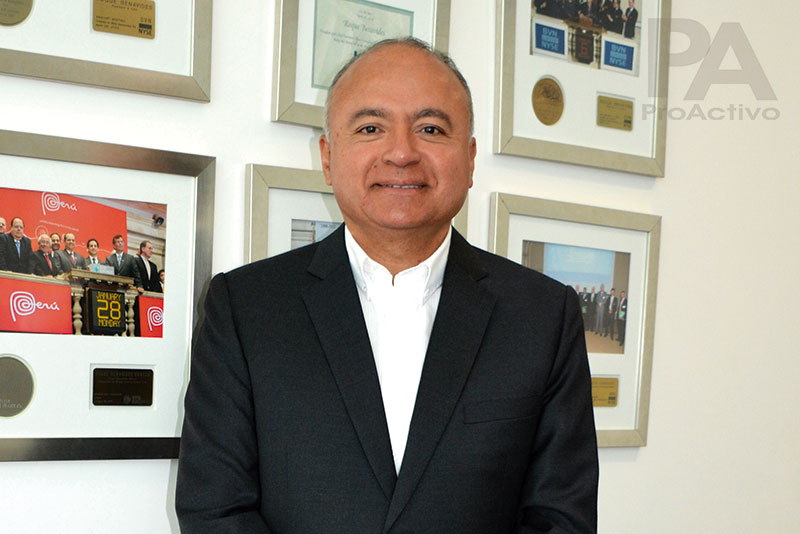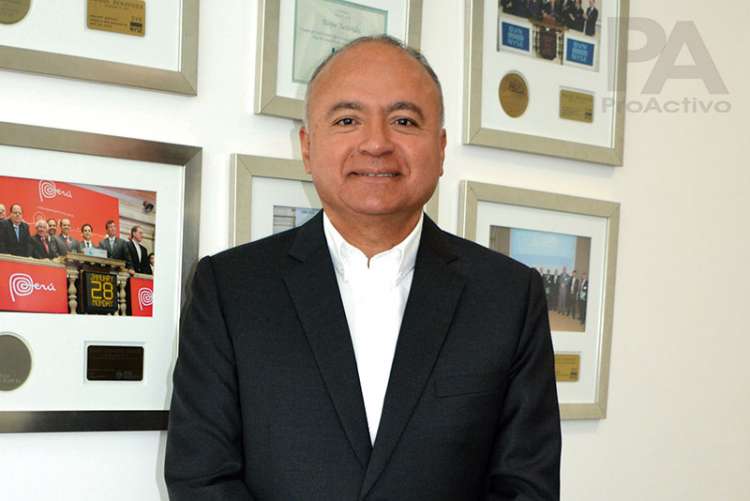ProActivo | Peru is a country that stands out for its geology, polymetallic production and quality of its deposits. In addition, domestic and foreign investments continue to be important due to the good ecosystem that has been generated in the mining environment. However, there are still challenges to overcome, says Victor Gobitz, CEO of Buenaventura, who rescues the strengths of our country to be one of the leaders in metal production. Here the interview for ProActive.
What is the socioeconomic outlook in the country, regarding mining investments?
Peru stands out for its geology, for the quality of its deposits, level of production achieved in copper, lead, zinc, tin, gold and silver. In addition, the country has managed to generate a kind of ecosystem: We have operations and projects of the main mining companies in the world, together with national companies with international standards.
There are the suppliers of goods and services, capital goods, equipment, software, consulting and also the contractors who do very good quality jobs. It is a kind of very favorable ecosystem; and we also have a normative legal framework that, while receiving criticism to make it less leafy, allows investment.
How important is the PDAC?
This event is very healthy, it is the place where we will explain where the challenges we have as an industry are.
What are those challenges?
One is that leafy paperwork, the country has grown, and also in bureaucracy. There are more than nine institutions that have to observe, review and review a mining project and that slows it down.
The lack of sense of urgency hurts.
A special chapter is the prior consultation, which has to be explained well – because it is a query, it is not a veto – and yet it is getting confused.
Today, mining projects through the Environmental Impact Study (EIA) require citizen consultation (with DNI).
For this, citizens organize and participate in a mining project. Your observations are taken into account, to be raised and for the project to finally obtain its environmental license.
However, we create an additional procedure, the prior consultation; that part of the premise that there are poorly informed native peoples and therefore, an additional procedure is required.
It happens that in practice, that same original people previously or during a mining process will be consulted, and will review the information through the citizen participation that is foreseen in the EIA.
What is the situation in this regard?
There is a kind of duplicity. Let me give an example, the mining project does not have two populations – an urban and an original population, which is not inserted in the economy of the environment – that does not exist.
Maybe that figure can be valid in very specific Amazonian issues. As an example, being in Loreto, in an urban area, I have a citizenship to which I informed of the project, I can have within that jurisdiction a locality, an original town that does not fit that figure. For that case it may be prior consultation.
Mining countries such as Canada and Australia have not signed ILO principle 169. Peru has signed it and what it has done is to superimpose a procedure that already existed within the EIA, which is to discuss, present and raise the observations of the citizens. There is a kind of confusion talking about permisology.
In your opinion, what other aspect requires further analysis?
In general, mining projects are in the high Andean areas, in shallow lands that belong to the peasant communities and there what is required is a more active role of the
State, which can create agile mechanisms so that these land acquisition processes are carried out in shorter, more equitable and simple terms.
Another issue that needs to be advanced is at the other end. Just as we fill ourselves with permits and procedures related to environmental issues. On the other hand, in the social issue – which is fundamental – does not exist (these mechanisms) and each negotiates and obtains its agreements as it can.
The State can reduce expectations gaps; between the population regarding the project, and the investor who wants to develop a project.
A third challenge, which is transversal to the country, is infrastructure. The mines are in high Andean areas and an export look is required as a country and to overcome that tremendous geography, so that it stimulates all economic activity.
It can be mining, forestry, agriculture, and even tourism.
What do you propose to overcome these challenges?
Join efforts so that from a territorial vision we can invest in mining projects that generate public infrastructure and boost the national economy.
We have strengths that put Peru in a leading position in metal production. However, we need to develop the full potential, and that demands making the procedures to increase infrastructure more agile.



